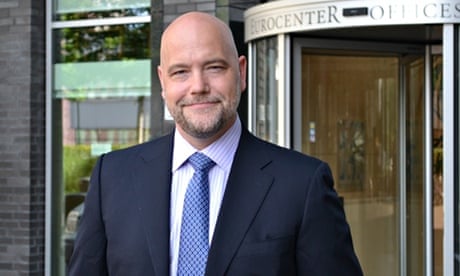Dear Michael,
Hearty congratulations to you on becoming the new chief executive of the Global Reporting Initiative. Your selection among an exceptionally strong group of candidates bodes well for both GRI and the future of corporate transparency worldwide.
Ernst Ligteringen's departure after a dozen years of exemplary leadership is a pivotal juncture rich in opportunities in a world dramatically different from 1997 when Bob Massie and I co-founded GRI. At that moment, we committed to a vision whose time we believed had come. We sensed that the ingredients common to all major social innovations – shared grievance, propitious timing, and bold leadership – were present and ready to fuel a major shift in corporate transparency. With collaboration from companies, investors, NGOs, labour groups and multilaterals in GRI's early years, we were able to lay the foundation for the GRI that you will lead in the coming years.
GRI faces a spectrum of challenges in preserving its position at the vanguard of sustainability reporting. As you well know from your work as an entrepreneur, an organisation that stands still is an organisation that will not thrive in the long-term. GRI's reconstituted governance is an example of adaptation in the face of a changing landscape in which sustainability reporting, in little more than a decade, has shifted from the extraordinary to the exceptional to the expected. Now, the challenge of raising the number of GRI reporters from thousands to tens of thousands demands a new generation of innovation, executed in a way that ensures that its original higher purpose – contributing to a just and sustainable global future – remains intact. Reporting has been, and always will be, a means to an end, not an end in itself. Disclosure is one among many necessary, but not sufficient conditions, for catalysing transformational change.
In collaboration with the Board, you undoubtedly are developing a strategy to guide GRI's operations in the coming decade. From my outsider perspective, I hope that these deliberations include a number of critical questions: First, how to bring sustainability reporting to the hundreds of thousands of private companies worldwide to complement GRI's strength with publicly-listed firms. Second, how to further advance customisation of reporting to address the diversity of materiality issues for both report preparers and report users such that no organisation can rightfully claim irrelevance, complexity or burden as an excuse not to report. Third, how to accelerate GRI reporting from "soft law" to "hard law" through integration in government policy, law and regulation.
Fourth, how to more closely and constructively collaborate with kindred disclosure initiatives to address market fatigue and confusion with disparate – and potentially complementary – initiatives. GRI's memorandum of understanding (MoU) with IRRC (pdf) is a step in the right direction. Like any MoU, it's not only what's in writing that matters – it's the concrete actions that follow that give any MoU real meaning. GRI's efforts to cooperate with the Sustainability Accounting Standards Board (SASB) should continue. The focus of the SASB – investor, US and sectoral – complements GRI's multi-user, global and universal indicators strengths. Imagine the impact of harmonising these two initiatives in driving reporting excellence and uptake worldwide. Win-win arrangements are within reach.
And lastly, how to ensure that sustainability context – the integration of thresholds and limits into environmental and social disclosures – remains a high priority in GRI's methodological innovation. The collective gains resulting from incremental improvements in environmental and social performance must be measured against the realities of finite constraints in terms of ecological limits and social norms if true sustainability is to be achieved.
Sustainability reporting and the transparency it promotes remains a work in progress, and always will be. New sustainability issues continuously emerge in a dynamic, rapidly changing world. In the early 2000's, GRI identified HIV-AIDs as a material issue in mining and other extractive industries, a position met with raised eyebrows that soon gave way to broad acceptance by both reporters and report users. Now, privacy, livable wages, "dark pools" in financial markets and other emergent issues merit the same level of attention as carbon emissions, occupational health and safety, board diversity and other issues regarded as mainstream. The "mainstream" does not stand still; it continues to widen.
I wish you great success in leading GRI into its next phase. In a perilous world, its role as movement builder, thought leader and social entrepreneur is needed more than ever. With restructured and streamlined governance, an enduring commitment to innovation and collaboration, and reducing barriers to scaling the number of reports by orders of magnitude, GRI's will continue to play the role of game changer that its founding fathers envisioned.
Cordially,
Allen White
Join the community of sustainability professionals and experts. Become a GSB member to get more stories like this direct to your inbox
